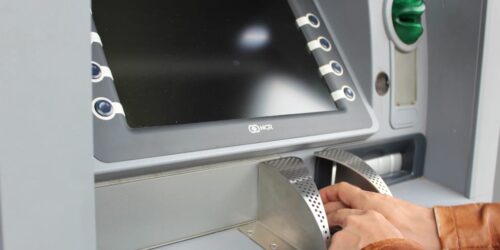Steps To Help You Become a Successful Ecopreneur

We may earn commissions from the companies mentioned in this post. View our FTC disclosure for more information.
Photo via Pexels
Each ensuing day, a huge amount of plastic, ink, paper, metal, plus other types of reusable items are thrown away. That is how most people look at the consumer cycle, yet these items shouldn’t end up in a compost pit. For the last twenty years, “going green” has turned out not just a meek quasi-environmentalist tune or a mantra for the local youth’s environment cleaning business.
The ecopreneur business domain has turned into a huge pool of business potential, set to embrace many new and sensational and environmentally and socially beneficial business ideas. For entrepreneurial women, it is about making big amounts of money in environmental and environmental protection. It is the best opportunity to ensure the world remains a tidier, healthier, and much more sustainable home for future generations.
Conquering the Basics
The term ecopreneurship should be the determining factor here. Thus, like what any other new enterprise requires, and so is what the new green business you intend to start will require for sustainability:
- A robust business case — A service or product that satisfies unmet market requirements.
- Business plan — Your vision and how you intend to achieve it. A business plan should include the way you plan to incorporate your business.
- A connection of trustworthy, self-propelling people — While you can work on your own, for you to grow, you will need people to help you and ensure quality service and increased business volume. A network implies more customers, suppliers, diversification, promotion potential, knowledge and new experiences, and more.
- Initial capital — Regardless of the type of business you opt for, you need starting capital.
- Grants — Look into grants available for women-owned small businesses.
- Loans — If you plan on taking on business loans, be aware of your credit history.
Whatever business, the 4 categories (sole proprietorship, partnership, corporation, and Limited Liability Company) form the baseline of your novel venture. Thus, you must ensure to invest more in your brainstorming sessions and planning. You must always fine-tune and rebalance things as you grow; based on the industry you’ve opted to operate in.
While many argue that things are easier when there is more money, in essence, an essentially poor idea, you do not expect to turn things around with big money. As such, you do not need to amass huge resources to start your green business — wisely planning will help you figure out how much you need for the smooth running of your business. Note that you can start your small business with a small loan or help from family or friends.
Evaluate Your Business case
Remember that every successful business case should answer certain straightforward questions:
- Does your business satisfy market needs?
- What’s your market and the location?
- What’s your distinctive selling plan?
- Who are your customers?
- Is your business sustainable?
- How does your business stand out among your competitors?
It is always sensible to choose a few flourishing examples from your industry and then evaluate them using the questions listed above to help you establish a suitable yardstick for your business. You must offer something that provides people with quality value for their money.
Select Your Business — “Green” Lens
What are the existing green business types? The industry is wide: from organic vegetable and flower farming to operating a club or restaurant engaging in small, ordinary, and organic products; from product manufacturing from biodegradable materials to energy production out of renewable sources.
Reprocessing different raw materials for other uses is common practice, and it is ever-growing and stronger, particularly in the technology field. Electronics make up a good example of non-biodegradable products; hence, they should be handled with care to avert ecological pollution, and possibly the most common course related to this is printer cartridge reprocessing.
Paint your business
To classify the new business inkling as green, you should adhere to any of the principles below:
- Include a high sustainability level in your business process
- Provide environmental-friendly services or products as a profitable, cost-effective option to non-green services or products.
- Look greener than your competitors in the market.
- Commit your business to ecological security or social restraint
The four categories offer your enterprise “green validity” and give your customers a surety that your services or products are of high quality.
Most ecopreneurs are concerned about their commitment to saving mother earth to earn more environmentally conscientious customers. They go a step further to show how much they care for similar concerns as their clients do. This seems a reality for businesses dealing in products that may cause pollution to the environment.
A few great examples
Many entrepreneurs assess the current competition within a particular market and look to counter it. In contrast, a few nonconformists and daring others opt for a different course — they invent, establish fresh markets, and change the actual value implication. There are various real-life examples, and this is how some of them worked.
- The Plastic Bank, a Canadian-based start-up green business, was co-founded by David Katz together with Shaun Frankson, to offer employment to people languishing in poverty. They were required to gather plenty of plastic waste for recycling and reshaping for different uses. Among the likely uses included 3D printing plastic palettes.
- The Cartridge 4 Planet Ark, an Australian ecologically-certified dealer in used printer cartridges, ensures that metal, ink, and plastic are reprocessed into either different products, such as tarmac or ordinary materials for fresh cartridges components.
Conclusion
Opting to go green is certainly the upcoming business, yet the ecopreneur revolution is here with us now. It doesn’t matter if it is your idea or just came across what you would wish to do, turn your life around, and change the environment; you only need to go through the steps above and check the boxes on the checklist.
Plan in advance, identify your market requirement, deliver top quality, and turn into a sustainable, environmentally, and socially responsive powerhouse.





